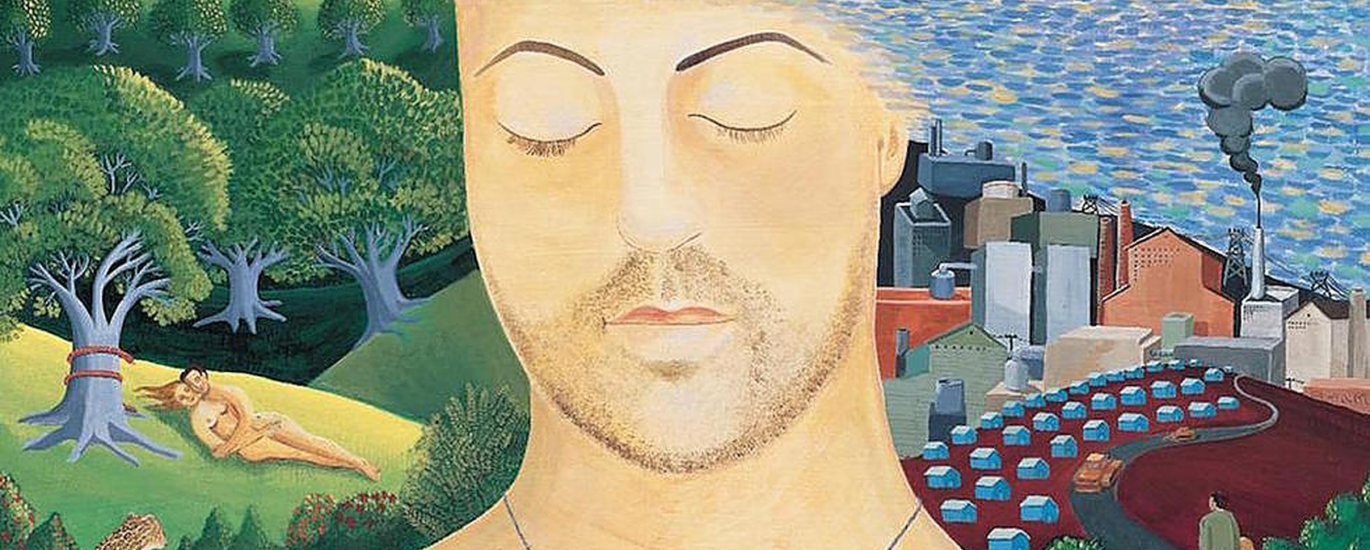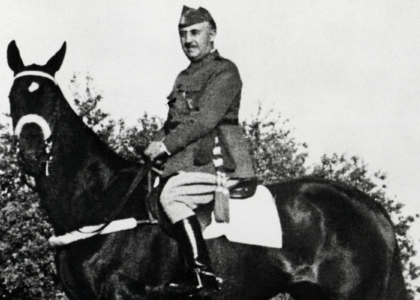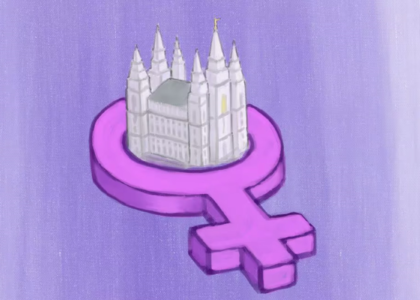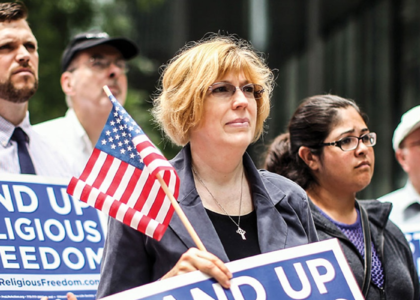“Through grace and innate survival, I made it through adolescence.”
Music is one of the keys that can unlock our memories, sometimes almost transporting us back through time.
Whoever you are, chances are you have at least a few of these musical shortcuts to the past…
Maybe you remember driving down the highway with your friends, windows down, singing together at the tops of your lungs. Or maybe you remember seeing a favorite band in concert and the electric energy when they played that one perfect song. Music can tie us to moments of community, of family, of grieving and celebration and callings of faith. Music even ties many of us to our most romantic moments through a special song that we share with a partner or spouse. Whatever genres you listen to, whatever instruments you play, music grounds all of us in our most intimate and important moments.
On today’s episode we’re joined by Jessie Iacono who takes us on a journey through music and memories, through childhood struggles, to marriage, to motherhood and medical crises, all while confronting patriarchy and trauma alongside the guiding lyrics of Billy Joel.
Our Guest
Jessie Bryan-Iacono
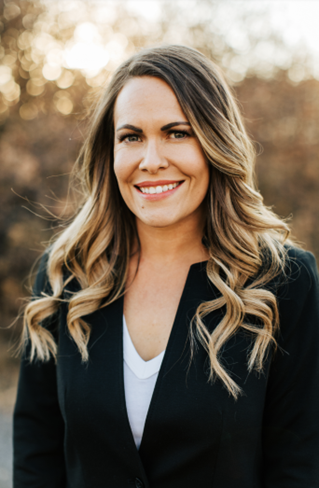
Jessie Bryan-Iacono (she/her) is a writer, a business owner and real estate investor. She enjoys reading, watching her three kids play sports, being active and traveling with her family.
My Life Described in Billy Joel Lyrics
by
Jessie Bryan-Iacono
The title of my essay for the popular cult classic podcast Breaking Down Patriarchy may bemuse you at first, or the fact that I refer to BDP as a cult classic. I promise by the end of my narrative, both will make sense…
“Uptown Girl”
I’m six years old sitting on a round wooden barstool in my family kitchen with my elbows up on the tan Formica countertop. Fork in hand, I slide eggs across my plate not wanting to take a bite as my stomach aches.
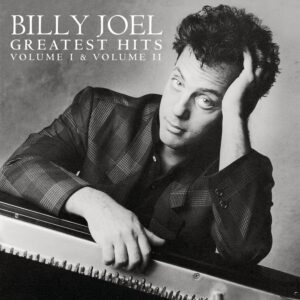
My mother called my breakfast “cheese egg,” not scrambled, not eggs with cheese, but cheese egg. To this day, I still prefer eggs with a little milk and a yellow pasteurized cheese slice. I make them for my kids too. My mother’s cooking wasn’t glamorous, it was simple, however I am still grateful for that little moment of consistency and comfort as a child to have a warm breakfast.
I manage to eat my breakfast that morning but before I am able to get out the door for school I have to run to the bathroom and throw up. My Mom says I’m not sick, I have hypoglycemia like her, which I learn means I need sugar, but sugar also seems to make me sick. My mom doesn’t just throw up, she gets migraines too. That’s why she is in bed all the time. I’m told we’re lucky Dad supports us, even though I don’t see him much.
This became a pattern in my life, sporadically in elementary and then much worse in junior high and high school. Throwing up in the mornings was a normal occurrence whether I ate or not, whether I felt nervous or not, but was always worse when the climate in my home was erratic, which was often. I never got used to it. Instead I developed a fear of going to sleep because I knew eventually I would have to wake up.
During the next few years I find solace in music. A credit to both of my parents for when it comes to music there are no restrictions. I go in my mother’s closet and put on her button-down jean shirt that is an adorable mini-dress on my seven-year-old frame when I add a brown leather belt. My mom has tiny feet so her tan strappy sandals actually stay on when I crank on “Uptown Girl” on the “Greatest Hits” album by Billy Joel and dance while singing into my microphone fist. Billy Joel is my favorite but I also play Elton John’s greatest hits and the Beatles White Album. The record player is in the living room and I am often left to my own devices laying out all my parents records. I learn to read by sounding out the songs on the back covers. I see myself in the pictures of beautiful women on the albums with long legs and high heels. They look so sophisticated and happy, I want to be an uptown girl.
***
“Movin Out”
I’m thirteen years old sitting in a doctor’s office wearing an oversized deep red tee shirt with a yellow sunflower on it, baggy blue jeans and black Adidas shoes. Its 1994, my mother finally decides to take me to a doctor. I threw up that week in the hall at school running from my second period science class, I couldn’t make it to the bathroom. The old man with snow white hair examining me makes a comment when I step on the scale about me being a “healthy” weight. This makes me feel self-conscious. I am 90 pounds fully dressed and find out that throwing up often as a teenage girl isn’t that rare, except I don’t stick my finger down my own throat. The old man looks like he should be retired and I feel extremely uncomfortable in his office. He asks me a few questions to which I mumble short answers. He decides I have school phobia. On the way home in the car while listening to “On Bended Knee” by Boys II Men, my Mom says, “What a quack. You don’t have school phobia, there’s nothing wrong with you.” That was the last time she took me to a doctor for nausea.
It may not be surprising to hear that I spent my teenage years numbing any way I could to suppress my emotions. I found out my father was an alcoholic around this time. I overheard my oldest sister telling a friend on the phone “My dad was so drunk last night, he got mad and ripped all the posters off the walls in my room.” I had an automatic of body experience. I went to my room and cried, mourning the loss of the “eternal” family I thought I had according to my faith tradition. Keeping family secrets, numbing and avoidance became my coping mechanisms. I started using alcohol, cigarettes and occasionally marijuana when I was just thirteen and was also sexually abused by an older teenage boy that same year which made things even worse. All of this behavior seemed normal to me because I wasn’t alone. Many of my girlfriends were doing the same things and had similar family dynamics. I never told anyone about the abuse or my chronic illness.
I’m eighteen my parents just separated, but they come to my graduation. This is the first time my mom leaves and I wonder how she will survive on her own. My siblings are all married with children. I’m the only one to make it to this age without getting pregnant. I don’t talk to any of them or really have a support system. My Mom moves into an apartment and I am left at home alone with my Dad. I’m told that because I’m the youngest I was sheltered from a lot of his verbal abuse and emotional unpredictability. I’m told that is the reason I’ve been able to function better than my siblings. Somehow this empowers me even though I know it’s not true, I see and feel and numb it all.
I come home from waitressing one night to hear “Ramble On” by Led Zeppelin blasting on the stereo. I find my Dad passed out on the end of his bed and see that he must have bleached his hair platinum blonde. I realize if I stay I’ll be responsible to manage his actions and emotions like my mother had always done. “At least he has a good job and we have a roof over our heads.” She would say. I know I have a choice to make. My parents’ marriage was ending and my life is just beginning. I decide in that moment, I’m movin out.
***
“River of Dreams”
Through grace and innate survival, I made it through adolescence. I was determined to lead a successful life and chose a like-minded partner, he happened to be my high school sweetheart. We shared similar values and ambitions. We got married at the median age of 21. I graduated four years later with a Bachelor’s degree in Accounting while he obtained his General Contractors license knowing he wanted to be a third-generation contractor. I chose accounting because it was practical and we had the dream of running a business together.
We had been married for four years when we became active in our families Mormon faith tradition. I had seen the stability of my cousins and friend’s families and even my husband’s family and attributed it to the faith. We wanted to create a similar foundation for our family that we had seen around us growing up. My mother has always been an orthodox member and was my greatest example of discipleship. This heavily contributed to our decision to expand our family. I don’t know if my husband felt the same pressure to have children that I did but he got asked too, “When are you going to have children?” If I’m honest I looked at maternity leave as a vacation and at that time in my life I needed one. Boy was I in for a rude awakening.
To say I experience morning sickness during pregnancy would be an insult to afternoon, evening and night sickness. By week seven I am throwing up not just in the mornings like I was used to, but all day long. I can’t keep anything down, but at least I know why. I miss a week of work, I try every holistic remedy to no avail and finally make an appointment with my doctor. She prescribes Zofran and it is a miracle. Not only does it relieve my nausea from pregnancy but helps with my chronic vomiting as well. I realize that if I were alive in many other centuries I quite possibly would not be surviving. This is a joyous time but I am also struggling because my health has never allowed me to keep up a steady fitness routine and now that I can eat regularly without being sick often I begin to gain weight rapidly. I’m feeling better in some ways but struggling in others.
I make it to our twenty-week ultrasound. We are excited to receive the happy gender news and see our babies sweet face for the first time, if only in blurry black and white. My husband holds my hand and we hear our little boys heart beat, a boy! He will be the first Iacono Grandson to continue my husband’s family’s lineage. We celebrate.
I tell my husband they are just going to take me upstairs and get my weight and measurements like they do at every appointment so he should leave and go back to work. I think how emotional I always feel at the doctor’s office. I think it may be due to my prior experiences. Even though I’m a grown woman, almost twenty-five years old, I feel like a child with little control over myself or my pregnant body.
If I’m honest I looked at maternity leave as a vacation and at that time in my life I needed one. Boy was I in for a rude awakening.
I’m sitting on the cold examination table in an awkward blue backward gown with my socked feet hanging, unable to touch the footrest. My doctor comes in, she is not wearing her usual smile. She asks where my husband is. I tell her that he went back to work. She hesitates and I become uneasy when she begins to speak. “The stenographer isn’t allowed to say anything during an ultrasound but they found something abnormal during the scan. She tells me my baby has a growth at the base of his spine. They don’t know for sure yet but it may be spina-bifida. She suggests I get dressed and call my husband to come back to the hospital. She leaves the room.
I’m spinning. The room that felt drafty a moment before is now hot and overwhelming. I don’t know what to think. I don’t call my husband immediately, I begin talking to God. I bow my head and plead, “I will do anything, I will give everything I’ll ever have, please make my child well, please help me know that he will be ok.”
Fifteen years later I can still hear the response I received, the tender mercy, the divine voice inside my head that spoke these words to my mind. “No matter what they say, he will be fine.” Simple and impossible to misinterpret.
I call my husband, he returns to the hospital and we sit together in a blur while several doctors come in and out of the room speculating on the different issues that could be attributed to the irregular mass they detected. We are very fortunate to get an appointment with a specialist at Primary Children’s hospital in just one week’s time.
It is the longest week of our lives. We tell our families. We spend it researching everything we can online about fetal tumors and mortality rates of similar in-utero and post birth cases. At the appointment, the specialist determines after reviewing the ultrasound in detail that our baby has a tumor near his tailbone, growing internally and externally. It’s called a sacrococcygeal teratoma. The only thing that can be done is hope it doesn’t grow too large during gestation. Inducing an early delivery increases the risks. They tell us he will be monitored with monthly ultrasounds.
A week later I’m driving home from work and get a call from the doctor’s office telling me that results came back from additional testing to help verify the diagnosis. They tell me the indicators are positive for downs syndrome and we should prepare for that possibility. I pull my car over and cry. I take a deep breath and remember, “No matter what they say, he will be fine.” I get back on the road and drive home to tell my husband.
We make it to thirty-eight weeks before the tumor gets to a critical size, they decide to strip my membranes. I go into labor the next day. I labor at home for twelve hours reading all the blogs that say, don’t go to the hospital too early and being my first pregnancy I don’t even know if this is real labor. Contractions are six minutes apart when it starts to snow so we go to the hospital nearest to our house that I was supposed to deliver at before my pregnancy became high risk. I am scheduled to deliver at the University of Utah so our baby could be transferred to Primary Children’s Hospital for surgery to remove the tumor. The doctor on call tells us I have to be admitted for them to check my progress to know if they should send us to the other hospital.
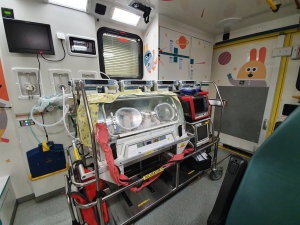
I’m in the bathroom changing into my favorite backless blue gown and my water breaks. I had thought the contractions were painful. Now I think I am going to die. Full blown labor comes on, contractions every minute or so and they tell us I will need to be transported by ambulance. My husband is required to sit in the front seat where he hears me scream for two and a half hours, a drive that should take thirty minutes. However, we are stuck in a complete whiteout blizzard. I’m squeezing the random paramedic’s hand un-medicated the entire way. We arrive at the hospital just before midnight.
I have been laboring for almost twenty-four hours by now. They get me admitted and inform us my doctor is stuck in the blizzard as well and will not make it. I’m dilated to a nine and so grateful to finally be able to deliver. I ask for an epidural. I never considered delivering naturally. I’m told the doctor on call doesn’t feel comfortable allowing me to deliver vaginally with my baby’s complications even though that was the plan. She strongly recommends a cesarean section. I am not in a position to make a rational decision. I want to be out of pain. I realize her recommendation is what will be safest for my baby. I agree and they prepare me for a spinal tap.
After the cesarean delivery, I don’t get to hold my baby boy. His Apgar score is a 2. After they stabilize him a nurse lays him on my chest for a moment when the incubator ambulance arrives to transfer him to Primaries. My dear husband briefly comforts me and then follows behind our son. A nurse returns later that morning with a picture of my sweet baby, she leaves it on a shelf across the room for me to look at. He has a large dimple in his cheek. I am in love.
His surgeon determines it will be best to perform the surgery to remove the tumor that same day. I am not coherent until after his surgery but when he is in recovery a nurse takes me over in a wheelchair. My husband tells me about the beautiful blessing he gave our son before the surgery. He tells me the surgery takes twice as long as anticipated. He tells me the surgeon had to open him up from his back and his stomach. He tells me that he coded during the surgery. He tells me the tumor had grown around several of his internal organs and though it was successful, the surgeon is concerned that he may have nicked his femoral artery and may not have use of his right leg. Lastly, he may be in diapers indefinitely. I take a deep breath and remind my husband. “No matter what they say, he will be fine.”
When you find out your child is sick it’s hard not to blame yourself. For a long time, I thought God was punishing me for desiring a career outside of motherhood. I thought that was sinful according to my faith tradition and I was being refined. I was at war with myself for many years, however I experienced great joy in the moments in between.
We cried in the hospital the day after our son’s surgery when we tickled his feet and he kicked his right leg. We cried when he was potty trained by two years without issue. We stood and cheered when he took the plate for the first time at four years old, crushing a ball off the baseball tee as he ran completely around the bases. He is a star athlete, has enough energy to power grand central station and brings us more happiness, along with our two daughters then we could have ever imagined.
Now when something unexpected arises I ask myself, having borrowed this question from a friend, “How is this happening for me?” I can’t change the trial or the outcome but I can choose gratitude. Many a song writer has quoted, “Life is like a river.” I’ve learned not to avoid the curves, rapids or other vessels. I do my best to embrace the flow because it’s my river, it’s my vessel. I know it can be a rough ride at times but it can also be a miraculous river of dreams.
***
“This is the Time”
After our son was born my husband and I started working together in his father’s construction company. I became their accountant. It was hard for me to leave the company I had been with for four years but I was elated to be able to take our son to work with me each day and utilize my degree. A year later the housing recession hit, it affected the builders and subcontractors before the rest of the population realized what was coming. It was a very difficult time for our family and my husband’s parents.
I have always been an avid reader and was reading a lot of fiction at the time. I remember one weekend we decided to take a trip down south to St. George, a recreation town four hours outside of Salt Lake City. I finished reading a book on the drive called Twilight by Stephenie Meyer. I really enjoyed it and learned that the author was previously a stay at home Mom from my same faith tradition. I was intrigued and looking forward to buying New Moon once I got home. While on the trip we took a scenic drive to Valley of Fire State Park in Nevada to enjoy a hike. We drove past a little dilapidated bar called Red Rooster. It literally had a giant rooster on the roof adding to the small-town charm. Instantly I had an idea for a novel.
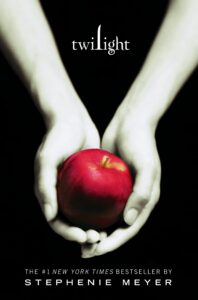
I grabbed a notepad off the stack of books on the floor. This was before kindle or smart phones so I always traveled with at least a half dozen books. I started making notes. I had no idea what I was doing but the words and ideas kept coming. I didn’t realize at the time but since then I’ve experienced hundreds of times how that inspiration flows. It’s what Steven Pressfield, the author of The Legend of Bagger Vance and many of my favorite books on writing calls, “The Muse.” I felt these characters and saw their journey. In that moment, it became my responsibility to write their story. I enjoyed writing poetry as a teenager and short stories and essays in school but had not discovered my infatuation with writing until that trip.
When we got home I found an old laptop with no internet access. I sat down at our kitchen counter every night after putting the baby to sleep and wrote, sometimes till the wee hours of the morning. I was also still working part time, we were trying to survive the housing crisis as homes were not selling and interest was still accruing. Writing kept me motivated and quite frankly became a therapeutic outlet during that time when we were living on savings and didn’t know how long the recession would last. I threw myself into the fictional world I was creating with the hope of someday publishing. I completed the novel, a Young Adult Sci-fi thriller, in just four months. Then I realized I didn’t know anything about publishing, so next I dove into researching editors, agents, simultaneous submissions and subscribed to writer’s market. I loved everything about the process.
When it became apparent that the housing market wasn’t going to bounce back with foreclosures continuing to rock the nation. I found out I was pregnant with our second baby. It was a pleasant surprise even though I was still nursing our then fifteen-month-old son. The same month I found out we were pregnant my boss at my prior company, knowing about the recession called out of the blue and offered me my job back. It was difficult to consider daycare now that I was used to taking my son to work with me but there was no money coming in from the family business and now more necessary than ever for me to bring in a paycheck and provide health insurance for maternity.
During the recession, my husband took work out of state, traveled often and we liquidated everything we owned to pay back the banks who held the mortgages on the homes we had to short sell due to our clients losing their financing. Getting back on Zofran was a lifesaver again now that I was expecting. The stress was immense during this time and I needed to be able to work and function. My husband and I did the only thing we knew how, we put our heads down and worked.
I kept writing, mostly at night during those years. I completed two more novels by the time I turned thirty, collecting an impressive number of rejection letters from agents and publishers. We had a three-year-old and a five-year-old and decided we are ready for a third child. We survived the recession albeit having to financially start over. For my husband getting through it and working with his father, now being a father himself, made him realize he wanted to have that father-son relationship again. The business made it difficult to maintain that so we decided it was time to break those ties and start our own company. I had enjoyed better health during those years, mainly due to being pregnant but looking back, like many young working Moms, I was in survival mode. With the challenge of a new business my innate entrepreneurship was reinvigorated and I immersed myself in business books like I had done in college.
My husband hired a business coach for us to learn from as we dove in, both working day and night to create more opportunity for our young family. I let my boss know again that I wouldn’t be returning from maternity leave. It was easier to leave now that I had put in eight years, pressed my nose against the glass ceiling of corporate America, also discovering shortly before I left that I was being paid a fraction of what my male colleagues were making. I told myself, this is the time, I’m going all in. I will never go back to working as an eight to five employee. I will build businesses and write books and for the time I spend away from my kids, I will never again be paid less than I’m worth.
***
“You May be Right”
The next time I see a doctor for my “school phobia” I’m thirty-one years old. I have been in bed for six weeks straight. I have eaten nothing during this time and have lost twenty pounds on my already small frame. I have to stop nursing my third child, she’s 9 months old. Surprisingly I still have milk but I’m too weak. My attentive husband takes care of our children, our business and everything else while I’m bedridden. I only get up to lay on the floor in the closet for a change of scenery and the hope of some relief.
I decide to go to a clinic to get B-vitamin infusions. They don’t help and neither does Zofran. Reluctantly I make an appointment with a doctor. She asks me questions about my symptoms and state of mind. I tell her about the recent night I spent lying in the bathtub in the fetal position wishing it all would end.

The water is warm and comforting. I don’t dare move. I’m thinking about the way the gradual sickness came on again the last several months. I quit my job after giving birth and made the commitment to function as partner and CFO in our construction company we started just two years earlier. This transition allowed me to work from home for the first time and no longer need child care for our three children. I think that just maybe we will get invited to park play dates and mommy lunches now. I think of no longer feeling the guilt of leaving my kids to drive to my fourth-floor office. I think about a recent client that went over their budget on the home we were building for them and decided not paying us was best for their family. I think about that clients high calling in our church that he wore as a badge of honor during many conversations. I think about my husband leaving our family camping trip to help the carpenters keep up with the tight schedule. I think about him working on Mother’s Day to get their home done in time. I think about having to sell our home if I don’t get better. I think I am going to be sick again. Despite my amazing husband and our three beautiful children whom I love deeply, after two decades of dealing with my health, knowing it has always held me back, and just when I think I’m outgrowing it, blindsided again. In those hours, days and weeks I see an existence that feels impossible to overcome. Now that I’ve experienced inconsolable dread, I realize that even if I can get better, I can go back at any time. I don’t think I want to handle this new reality. I think I want to fall asleep and never wake up.
At the conclusion of my doctor appointment she tells me I have generalized anxiety disorder at the very least and conveys that if I do not agree to take anti-depressants she’ll admit me to the psych ward. She tells me it will help. My father and eldest sister had mental health challenges their entire lives and were on and off medication. I did not want to get on that rollercoaster. I was stubborn and felt that taking medication meant I was accepting one of my greatest fears, that there was something wrong with me. “You may be right.” I said to her, but I will only take them for a short time till I can get the anxiety under control.
***
“Only the Good Die Young”
The next four years we experienced great success in our business. We found our niche in custom home building and started to win awards. We also enjoyed vacations and activities with our three children. Baseball became a large part of our lives with our son playing on super league teams we traveled often for tournaments. Our daughter’s horseback riding, dance and sports also kept us in the fun yet busy stage of life.
I’m thirty-four and its back to school time. We had just completed a parade of homes event that consumed our summer and I’m looking forward to things slowing down a little. Its Saturday and we have tickets to the Sarah McLachlan/Josh Groban concert. We’re driving with my husband’s sister and his parents. I get a call from my sister. “Jessie, Dad is dead.” My grandfather is currently in the hospital so I had to stop and make sure I heard her right. “Dad,” I ask. “What happened?” She tells me as I burst into tears. My husband and his family think it’s my grandpa and I let them know it was my Dad who passed and to please drive back to our car so I can go be with my family.
My father threatened suicide many times throughout my life. The last few years had been rough. I’ve spent many frustrating hours with him on the phone as well as my Mother and siblings. He called me a month ago asking if I would bring him the .22 rifle that he gifted to my husband. He wanted to go shooting, something he did occasionally but hadn’t for many years. I told him I was busy and would see what I could do. He called my brother next and asked him to take him shooting. He had also given my brother a .22 rifle. After that trip he kept the gun. Its one of those things that I think will never happen, but when it does, I think that I always knew it would.
Each of us can pinpoint the few catalysts in our lives where we can look back and almost see the fork in the road. This incident, losing a parent in such a traumatic way took a toll on me though I didn’t realize it at the time. It was two years later our sweet friends and neighbors lost their young son to cancer. We were standing in line at the viewing looking at the pictures of this dear family. I look over and see tears rolling down my husband’s eyes and each of my children’s eyes as well. I realized that I felt very little emotion. It scared me. I also realized that besides the actual day of tears when my father passed away, I had not cried since or processed his death. I wondered what else I had been suppressing and how it was affecting my health. It had been a couple years since I had seen the doctor that diagnosed me with anxiety, so I went to see her. I told her about my father and my friends recent loss and that I was struggling to feel anything even though I wasn’t taking anti-depressants that normally suppress emotion. She told me that every day people experience PTSD and it isn’t just a diagnosis for victims of war and extreme trauma. She recommended I see a trauma therapist that she knows who specializes in eye movement desensitization and reprocessing, or EMDR therapy. Looking back, I can see a very distinct fork in the road. I hit the brakes and took a left.
I’m thirty-seven years old and I’m nervous entering the therapist’s office. I give her the thirty-minute version of my life. A little bit like this version. I tell her about the years of vomiting, the guilt from being a working Mother and the anxiety of running a high demand business. I tell her about the nightmares I’ve had throughout my life that I am continuously pulling a sticky pink substance from my mouth. I tell her I feel like its gum stuck to the roof of my mouth, it keeps me from speaking and I just keep pulling until I wake up. She recommends that I read Feelings Buried Alive Never Die by Karol Truman and The Body Keeps the Score by Bessel Van der Kolk. Then she tells me the most important thing. It turns out my mother was right in a way. “There is nothing wrong with you,” she says “However, you have a lot of trauma work to do.”
Its one of those things that I think will never happen, but when it does, I think that I always knew it would.
Since then I learn about nervous system dysregulation and how this attributes to the majority of mental health issues and substance abuse issues. I learn that this affects women and men. I discover Dr. Brene Brown and Dr. Nicole Lepera, the Holistic psychologist. In my opinion their work is changing the world as well as millions of others practicing and sharing this healing work. I also learn in therapy about the masculine and the feminine. My identification with the masculine has caused me a great deal of cognitive dissonance. I learn that I have a deep desire to connect with the divine feminine, something that is not spoken of in my faith tradition. I spend more than a year working through trauma caused by our patriarchal culture and the unhealthy beliefs attributed to it. I learn this affects women and men equally. My therapist is an amazing woman, her commitment to helping me heal has changed my life.
I decide how I feel about suicide. “Death is freedom, and survival is protest.” Only the Good Die Young is a great rock and roll song with mixed messages but I love it. I learn that the key to healing for me is self-compassion. I also learn the importance of speaking out about the antiquated institutions who refuse to change with the times. They are hurting people as often as they think they are helping. I discover there are people out there with similar experiences. I meet Amy and learn about Breaking Down Patriarchy. I meet other women who are teaching and empowering women.
Unfortunately my eldest sister also passed away recently at the age of forty-four. She admitted herself into a drug rehabilitation center for alcohol abuse. The medications that were meant to detox her body ended up being a toxic dose that took her life. While processing her passing through meditation and breath work she visited me one morning. I felt her intense energy throughout my body. She left me with the most beautiful understanding of where she was, what she was experiencing and what I can learn, it was simple, lead with pure love.
***
“It’s Still Rock and Roll to Me”
When I considered being on the podcast initially the common thread between me and Breaking Down Patriarchy was that I am a woman who has found success in an intrinsically male dominated industry. I know I haven’t spoken much about that but as you learn through my story, I haven’t spent my career seeking equality in construction. I spent more time seeking survival, approval and value defined by patriarchy, which only contributes to the problem. Have I experienced sexism and patronization in my career? Of course. There are a few incidents that stood out when I thought about it but I don’t have dozens of examples. I don’t think construction or other male dominated industries are inherently sexist, only individuals who run them and are not awake. A more poignant realization for me was that my life had been impacted a lot less being a professional woman in a male dominated industry than it had by being a woman in a male dominated religion.
The last few years I’ve been discovering who I am and what I believe. My husband and I both have experienced extreme personal growth through our journey together. The relationships that are most important to me are stronger. I just turned 40 and mentally and physically I feel better than I could have ever imagined.
Developing and running businesses while raising a family with my husband has brought me so much purpose and joy. He and I always say that our meeting was paramount for both of us. I am still the acting CFO of our businesses and enjoy an involvement in real estate, however I have stepped away from day to day operations. After almost twenty years of being married to a builder, I got tired of being asked “Are you the designer?” My current response is, “No, I’m a writer.”
I have a great love and appreciation for the businesses my husband and I have built, and truly believe I can do anything I choose in that realm, it’s still Rock and Roll to me, I’ve always done it but it isn’t what I want to be doing the rest of my life. I want to write books and share the stories I’ve created to better understand the world and I also want to participate in creating more equality. That is what I’m focusing on.
***
“We Didn’t Start the Fire”
I couldn’t complete my story without quoting a very impactful movie of my youth, Clueless. At the end of the movie when Cher discovers she’s in love with her college age half-brother once removed, she spouts “Wait a minute, I Love Josh.” You can imagine my surprise when after listening to just a handful of Breaking Down Patriarchy podcasts, it was the final piece to the puzzle, I realized, “Wait a minute. I’m a feminist.” This was earth shattering news. I wondered how I’d overlooked this identification for so many years. Looking back, it all made sense. I hyphenated my name after I got married, I refused to have children until I graduated from college. I bucked traditional gender roles insisting on managing our family and business finances while also refusing to iron or consistently prepare meals.
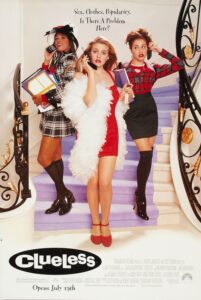
Stereotypes aside it is so important for us to understand, we didn’t start the patriarchal fire. When I get into conversations with people and sense their immediate defenses I remind them and myself, none of us living on the earth today created this culture. We are products of it. We can’t pretend it doesn’t exist. I’m simply trying to understand it and participate in a more inclusive narrative.
I have gained such a broader perspective from learning about the history of women and the affects of patriarchy on both men and women. As a recovering daughter of patriarchy, I have been able to connect with women in a way I didn’t know how before. Last season Amy talked about her frustration after re-reading journals from when she was younger and all the time she spent in dissonance. I completely related with her and until we are vulnerable enough to share our stories we cannot participate in creating the solution.
I am indebted to all of the women who wrote the books that were discussed in season one and the amazing women who read them and shared their perspectives. You have already added so much value to my life but also gave me courage to participate in this podcast, and to share my experience as well.
Finally, to address the generalization of the Breaking Down Patriarchy podcast being a cult classic. Understanding patriarchy and breaking it down is very much a transgressive movement cultivating a following person by person, and I love seeing that people are gravitating to this information. We’re searching for enlightenment and education like Amy has provided with this podcast. I believe that these subversionary ideas will become mainstream and like the women who said, “I remember when I couldn’t vote,” or like our mothers who told us, “I remember when I couldn’t wear pants to school,” I can only hope that our daughters will someday think, “I remember when women were considered the second sex.”
***
“My Life”
I have shared many of my experiences and the amazing thing to me is that all throughout my life things happened and I never considered that they were side effects of a broken system, I thought I was broken. The miracle and I suppose the moral to my story is that there is hope, there is healing and there is transformation. The awakening process for me started by taking control of my own body, this is critical for women to consider, then taking control of my mind, continuously seeking knowledge from many sources and determining what is best for me, and finally my soul, my spirit which I will forever be exploring and discovering the mysteries of humanity and the universe. I am so grateful for this opportunity and would love to connect with anyone who has related with my experiences in anyway.
***
None of us living on the earth today created this culture.
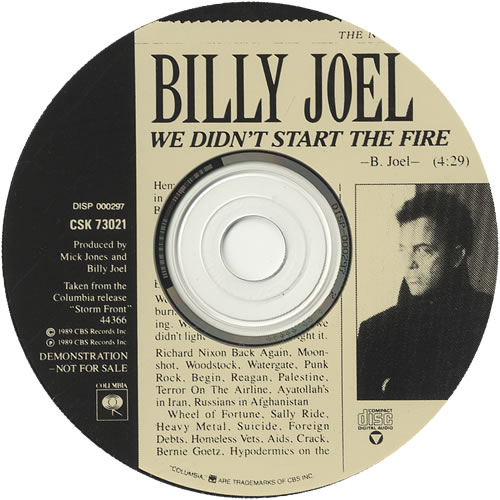
We are products of it.
Listen to the Episode
&
Share your Comments with us below!

